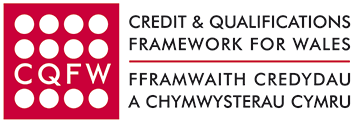Equality, diversity and inclusion in dementia care practice
- Unit ID:
- CCY241
- Unit Code:
- PT22CY067
- Level:
- Two
- Credit Value:
- 3
- Sector:
- 1.3
- LDCS:
- PT22
- GLH:
- 24
- Last registration date:
- 31/08/2019
- Lower age restriction:
- 16

Purpose and Aim
This unit provides knowledge, understanding and skills for those who provide care or support to individuals with dementia in a wide range of settings. The unit introduces the concepts of equality, diversity and inclusion that are fundamental to person centred care practice
Learning OutcomesThe learner will
|
Assessment CriteriaThe learner can
|
||||||||||||
|---|---|---|---|---|---|---|---|---|---|---|---|---|---|
|
|
||||||||||||
|
|
||||||||||||
|
|
Assessment Methods:
Assessment Information:
There is no specific assessment information to be used with this unit.
If not specifically stated in the assessment information, a plural statement in any assessment criterion means a minimum of two.
Other Mappings:
NOS ref: HSC 21, 31, 41, 24, 35, 45
Assessor Requirements:
This unit needs to be assessed in line with the Skills for Care and Development QCF Assessment Principles.
Learning outcomes 2 and 3 must be assessed in the workplace environment.
Additional information:
An individual is someone requiring care or support
Person centred approach:
This is a way of working which aims to put the person at the centre of the care situation taking into account their individuality, wishes and preferences
Carers and others may be:
• Care worker
• Family
• Advocate
• Colleagues
• Managers
• Social worker
• Occupational Therapist
• GP
• Speech and Language Therapist
• Physiotherapist
• Pharmacist
• Nurse
• Specialist nurse
• Psychologist
• Psychiatrist
• Independent Mental Capacity Advocate
• Independent Mental Health Advocate
• Advocate
• Dementia care advisor
• Support groups